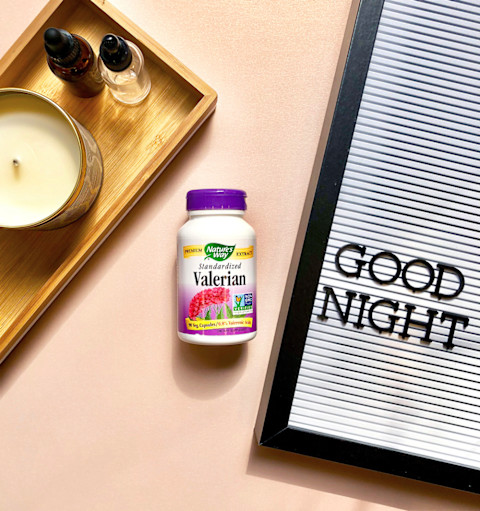
"When it comes to sleep, I often find we are our own worst enemy," says Dr. Tiffany Lester, who specializes in integrative and functional medicine at Parsley Health in San Francisco. "We stay up to watch just one more episode, drink caffeine past noon, or ignore when our bodies signal it's time to go to bed while burning the midnight oil."
While there can be a sense of accomplishment in extending your days as much as possible, Lester says that not prioritizing quality sleep can have effects that reach far beyond feeling a little drowsy or unfocused the next day—and sometimes those effects take years to show up.
"Detoxification occurs most efficiently at night while we are sleeping, as [our bodies aren't distracted] with meals, exercise, and work," according to Lester. "And when we don't sleep well over the long term, we significantly increase our risk for issues like weight gain." Studies have also shown that inadequate sleep can disrupt your daily life in ways you might not even realize, like impairing your ability to make healthy food choices1.
The good news is, there are ways to obtain better sleep, starting with these three methods below. Your body will thank you tonight—and later.
Stop the problem before it starts.
If you've been encountering occasional sleepless nights, it may be time to take a look at your daily habits. Are there any common aggravators that could be affecting your sleep quality, such as drinking too much caffeine throughout the day, watching screens near bedtime, or eating foods that take a long time to digest?
Take them out of your routine and see if your ability to fall asleep improves—then add sleep-promoting activities to your routine, like cardiovascular activity, which has been shown to have positive impacts on sleep quality, as it can help reduce stress. The Department of Health and Human Services recommends that adults get in around 150 minutes of moderate aerobic exercise or 75 minutes of vigorous aerobic activity each week—which breaks down to a manageable 10 to 30 minutes a day. See what it feels like to work out at least one to two hours before you hit the hay (elevated endorphins and body temperature can keep you awake if you exercise right before bedtime).
Establish a sleep routine.
You likely had a nighttime routine when you were a kid, but creating one for yourself now will likely also help you fall asleep more quickly.
"The goal is to activate your parasympathetic nervous system—which controls rest and digestion—so your brain and body can truly relax," says Lester, who regularly recommends the practice to her patients with sleep issues.
She says that the sleep routine itself is actually more important than what the routine includes, whether it's taking a long bath, meditation, or reading a book. Why? "We are creatures of habit and our nervous system will respond accordingly when we send it the correct signals."
Try a sleep aid.

If you're still having trouble with occasional sleeplessness, you might want to try a sleep supplement, like melatonin or valerian from Nature's Way, which formulates high-quality supplements backed by nearly 50 years of earned trust in the space.*
Melatonin is a hormone released by our pineal gland to help regulate the sleep cycle and promote restful sleep*, according to clinician Dr. Chris Oswald, the manager of education content at Nature's Way. The thing is, lots can affect how much of it our bodies get. Sending emails on your laptop or scrolling through social on your phone before bed? The blue light emitted from your screens can delay the ability of the pineal gland to release melatonin, says Oswald. Likewise, traveling across time zones and even natural aging can down-regulate the melatonin receptors in your body so it produces less endogenous melatonin over time. Up your dose with a melatonin supplement to help you fall asleep if you are experiencing occasional sleeplessness,' suggests Oswald.
Valerian root is another common herbal sleep aid for occasional sleeplessness that has uses dating back to the 11th century.* Nature's Way sources valerian root from European countries, like Poland, the Netherlands, and Bulgaria, where the herb has grown on family farms for generations. "No one feels at their best after they've been up all night. Valerian is one of my favorite herbals to make sure you have a productive tomorrow by getting restful sleep tonight—a common recommendation is to take valerian one hour prior to when you would like to go to sleep*," says Oswald.
With the help of these methods and other traditional remedies, good sleep is so close you can feel it. Just remember you should always double check with your health care team before starting any new supplements or medications.
*These statements have not been evaluated by the FDA. These products are not intended to diagnose, treat, cure, or prevent any disease.
